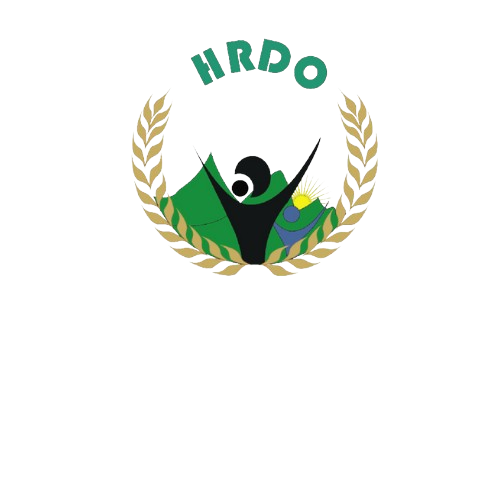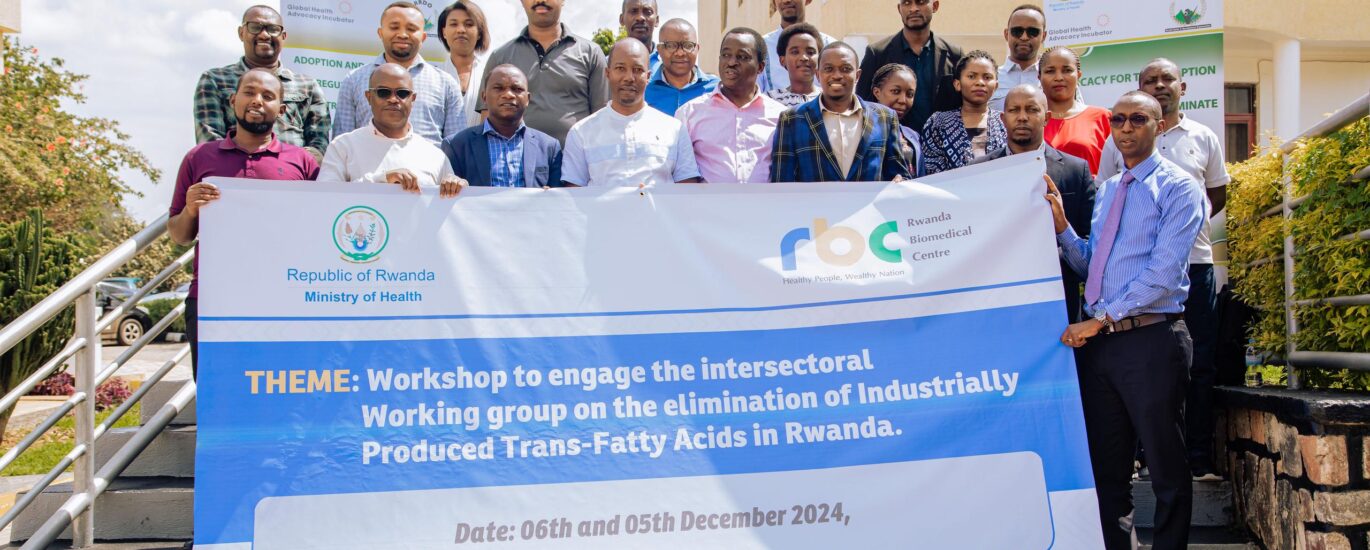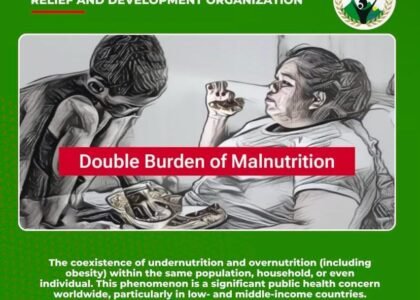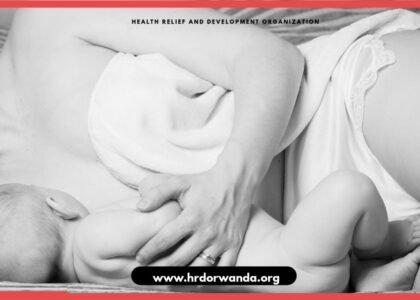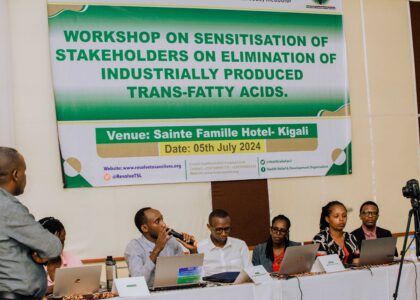On the 5th of July 2024, the Rwanda Biomedical Center(RBC) in collaboration with Resolve to Save Lives (RTSL) and Health Relief and Development Organization hosted a stakeholder sensitization workshop on trans-fat elimination in Rwanda.
The main objective of the workshop was to engage key stakeholders in development of trans-fat regulation and discussing public health implications of trans-fats and why they should be eliminated from the national food chain. This align with WHO replace an action package to eliminate industrially produced trans fat from the global food supply.

According to WHO Replace package ,High intake of trans fat (>1% of total energy intake) is associated with increased risk of coronary heart disease and mortality. Eliminating trans fat is a powerful way to prevent heart disease and the high costs it incurs for individuals and economies in medical treatment and lost productivity. WHO remains committed in supporting countries in their efforts to eliminate industrial trans fats for good and in celebrating their achievements to this end.
With the REPLACE action package, WHO has provided governments with a strategic approach to eliminate industrially produced TFA, these are 2% TFA limit, Hybrid ( Combining 2% TFA limit and PHO ban) and Partially Hydrogenated Oils ban. These measures are designed to eliminate industrially produced TFA from the food supply.
Hence WHO calls for accelerated action till 2025 to complete this effort and remains committed to supporting countries in their efforts and celebrating their achievements.

Dr. Francois UWINKINDI , NCDs Division Manager at RBC.
Highlighting the health effects of un-regulated iTFA.
RBC Representatives stated their mission to alleviate the burden of NCDs throughout Rwanda through integrated prevention, diagnosis, and care and treatment services.
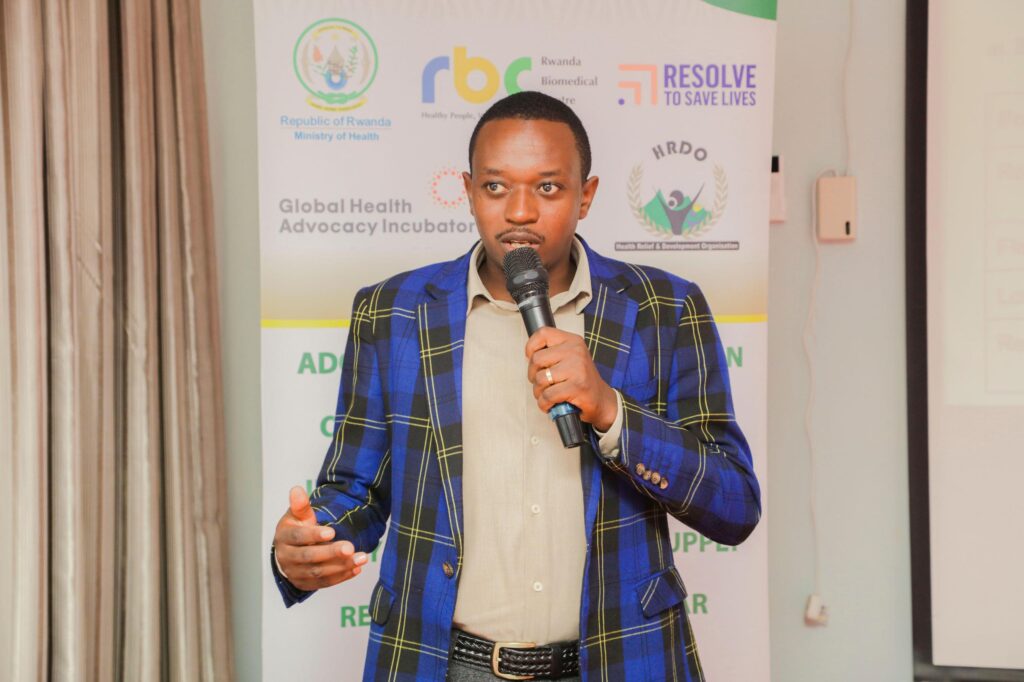
Mr. Alphonse MBARUSHIMANA , The Executive Director of Rwanda NCD Alliance
Explaining why Rwanda should Adopt Hybrid approach of WHO to eliminate iTFA in Rwanda.
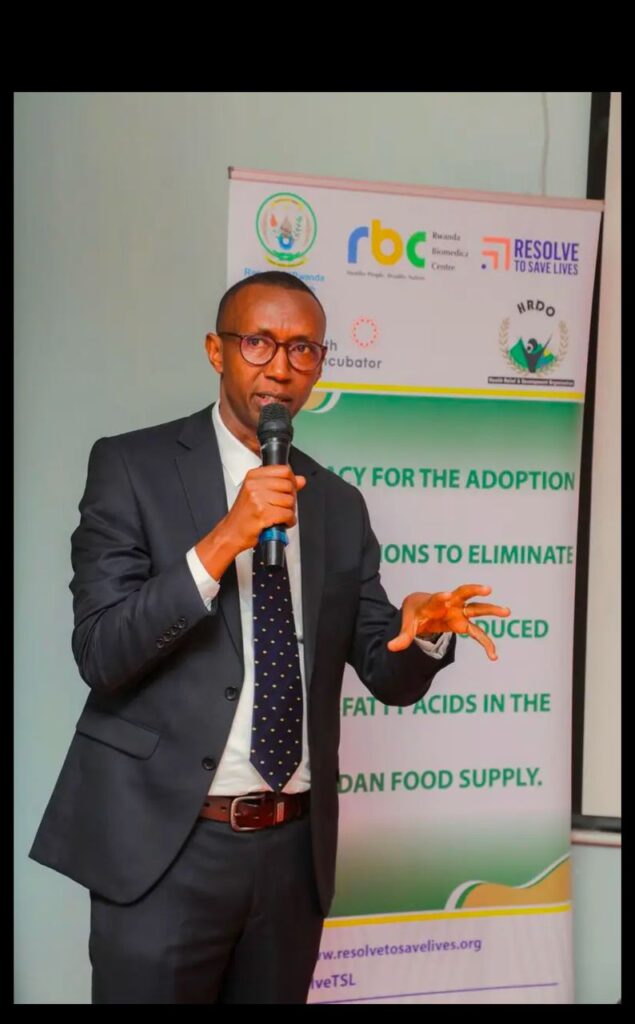
Mr. James MUNANURA, The Nutrition Consultant at RTSL
Presenting the key considerations and Guidelines to regulate TFA in Rwanda

Mr. Elinami MUNGURE, The iTFA Program coordinator in EAC at GHAI
Highlighting the milestones and EAC interventions to regulate iTFA in EAC States.

Amb. Zephyr MUTANGUHA, the Chairman of the Board at HRDO,
Highlighting the efforts made by HRDO under the support of GHAI and RTSL to raise awareness and advocate for iTFA regulations in Rwanda.

RTSL, a US-based, global public health organization with a mission to prevent 100 million deaths from heart disease and to make the world safer from epidemics has been working with WHO, the Global Health Advocacy Incubator and the NCD Alliance to eliminate industrially produced tans-fat from the global food supply since 2018. The global partnership has led to the adoption of TFA elimination policies in more than 43 countries. RTSL is committed to supporting trans-fat elimination in Rwanda.

As a follow up to this workshop Rwanda Biomedical Cenfre (RBC) in partnership with RTSL organized a follow up workshop to have a comprehensive discussion with the Intersectoral working group composed of the national stakeholders to mainly:
- Present preliminary findings of the landscape analysis, including the policy landscape,
- Discuss policy options for drafting laws and regulations for TFA elimination,
- Develop a roadmap for eventual formulation of the regulations and possible elimination iTFAs in Rwanda.
Participants involved
| SN | Institution |
|---|---|
| 1 | Rwanda Biomedical Center/RBC |
| 2 | Food and Drugs Authority/FDA |
| 3 | Rwanda Standards Boards/RSB |
| 4 | Rwanda Development Board (RDB) |
| 5 | Rwanda Revenue Authority (RRA) |
| 6 | Rwanda Inspectorate, Competition and Consumer Protection Authority (RICA) |
| 7 | Ministry of Commerce and Trade (MINCOM) |
| 8 | Private Sector Federation (PSF) |
| 9 | Rwanda Consumer Rights Protection Organization (ADECOR |
| 10 | Rwanda NCI) Alliance |
| 11 | Rwanda Nutrition Society |
| 12 | World Health Organization |
| 13 | African Improved Foods |
| 14 | Ministry of Agriculture and animal Resources (MINAGRI) |
| 15 | Health Relief and Development Organization (HRDO) |
| 16 | CAVM |
| 17 | Public Health expert |
| 19 | Umbrella of Human Rights Organizations in Rwanda (CLADHO) |
| 20 | Réseau de Dévéloppement des Femmes Pauvres (RDF |
HRDO appreciates the Ministry of Health of Rwanda, Resolve to Save Lives (RTSL),Global Health Advocacy Incubator , Rwanda Biomedical Center(RBC) and every Institution which took part in this collaborative workshop engaged in more comprehensive understanding of the current status of the Trans fats by presentation of the preliminary results of the landscape analysis, possible replacement of PHOs, policy options for drafting laws and regulations for TFA elimination and development of the roadmap for TFA elimination.

Participants.
The process of eliminating industrially produced TFA globally and Rwanda in particular, can only be successful with active involvement and participation of key stakeholders in the food and nutrition, trade and manufacturing industries.
